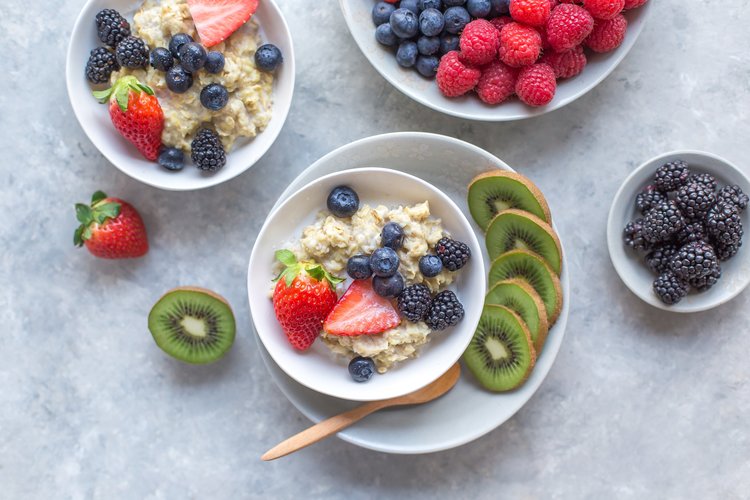How Often Should You Poop? 💩 What Causes Constipation Or Loose Stools??

Having regular bowel motions helps you to clear out waste products, toxins and bacteria from your body. Did you know just by assessing your poop you can gain a clear understanding of what is going on inside your body, it’s one of the best ways to assess whether your body is lacking in something, or needs more of something.
So, how often should you poop? What’s normal?
The medical industry and the holistic health industry have different opinions on this topic. While research varies, the medical industry say that “normal” stool frequency can be anywhere from three bowel motion per day and three bowel motions per week, this in my opinion is not the ideal range.
In my opinion you should be clearing your bowels at least once daily. This can vary depending on the individual, some people with great bowel health may go 2-3 times daily, that is fine in my option too as it is normal to have a bowel motion after each meal.
What should the consistency be like?
Ideally your stool should be like a sausage or soft banana, easy to pass, smooth and soft, and it should feel like you’ve emptied yourself out completely. See the Bristol stool chart above, you want your stools to be like number 4 ideally, or type 3.
What causes you to poop too little or too often?
Here are some factors to consider when you’re not pooping enough:
-
A low fibre diet
-
Inadequate water intake
-
Hormonal imbalances – being estrogen dominant or being on the OCP
-
Stress
-
Not eating enough
-
Bacterial imbalance
-
Nutrient deficiencies
-
Food intolerances or sensitivities
-
IBS
Here are some factors to consider if you’re popping too much:
-
Acute illness – e.g. viral gastroenteritis
-
Food intolerance or sensitivities
-
Underlying illness – such as Irritable Bowel Disease, crohn’s
-
Lactose intolerance
-
Coeliac
-
Hormonal fluctuations
-
Bacterial imbalance
-
Stress
-
Too much caffeine
As you can see there are many factors to take into consider when it comes to the frequency of your stools.
How can good gut health impact your overall health?
-
It can help to boost your immune system (over 70% of the immune system is in your gut)
-
It can help to boost your mood (over 90% of serotonin, our bodies feel good hormone is made in the gut). This can help to lower anxiety levels.
-
It can help to balance hormones.
-
It can improve skin conditions – such as acne, eczema, psoriasis.
-
It can reduce digestive complaints – bloating, stomach cramps, constipation, diarrhoea, gas.
-
It can improve autoimmune conditions.
-
It may improve food intolerance – it’s thought that food intolerance may be caused by poor quality of bacteria in the gut. This can lead to difficulty digesting the trigger foods.
Gut health is an area I specialize in in clinic. It’s an area I’m very passionate about, especially after suffering from IBS in my early 20’s. Just by improving my gut health I transformed my health, boosted my immune system, got rid of my eczema, said bye bye to constipation and balanced my hormones.
Bottom line – Pooping 1-3 times a day with a bowel motion that is easy to pass, formed and soft and feel like you’ve emptied yourself out is a good indicator that your gut is healthy. If you’re pooping doesn’t feel normal, reach out and ask for help, don’t brush it off. Simply by improving your gut health you can improve your overall health dramatically.

Hi I’m Natalie, a Registered Clinical Nutritionist, health influencer, blog writer & recipe creator. My own health complications prompted me to make positive diet & lifestyle changes, revitalize my health leading to a career change from the corporate world to nutritional medicine. I believe in a wholefoods approach to good health, focusing on simple strategies for modern, busy people.
Let's connect @nataliebradynutrition
The information on this website is not intended to replace the advice of your GP, a one on one relationship with a qualified health care professional and is not intended as medical advice. It is not intended for self-diagnosis, treat, cure, or prevent any disease. I encourage you to make your own health care decisions based upon research and in partnership with a qualified healthcare professional. The entire content of this website is based on the opinions of Natalie Brady, a qualified Holistic Nutritionist, unless otherwise noted. Click here for term and conditions of services.
Copyright © Natalie Brady Nutrition 2022 | Natalie Brady Nutrition Listed in Auckland's Top Nutritionists | Website by Fuel Media




